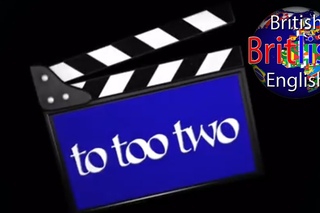Confusing English: LIE or LAY? RAISE, RISE, or ARISE?
Today, you’ll learn two sets of confusing vocabulary! Do you RAISE your hand, or RISE it? Do you LAY down, or LIE down? “Who is LAYING in my bed?“ Or is that “Who is LYING in my bed?“ This lesson will teach you the meaning of each of these words, and how each of them is used differently. Many native English speakers make mistakes with ’lay’ and ’lie’, but by the end of this lesson you will understand the grammatical reason why we use each of them in different situations. This is a part of the language that can be challenging for English learners because it has irregular verbs. But don’t be scared! Mr. E and I will explain it and make it clear. So have a seat and let’s learn some English! Afterwards, test your vocabulary knowledge with the quiz:
TRANSCRIPT
Good morning. Hmm. Sorry. James from engVid. That probably raises a few questions for you. “Why did he say: ’Good morning’, when it could be any time in the world?“ Yeah. Well, I’m going to help you today, because that is a common word that we use in English, but there are some other words that are similar that many people make a mistake with. And I’m going to help you learn them today. That’s “raise“, “rise“, “arise“, “lay“, and “lie“.
Now, quick story: When I first heard this 10 years ago, I was teaching and a teacher asked me: “James, why do we raise or why do we rise?“ And I didn’t know. I honestly didn’t know. Of course I know what... When to use them, but my problem was we just know because we’ve been taught, but no one actually sits you down and said: “The exact difference is this.“ So I had to study it. And today I’m going to help you not make the mistake I made, by knowing what it is and how to use it, or use them, because we have five words.
Let’s go to the board. Do I raise my hand or rise my hand? Tough question if you don’t know the differences between them. And I’m hoping this lesson will help you. In fact, by the time we’re done, you should master this and be more fluent in your English use.
First one: “arise“. If you ever watched any sci-... Scientific movie, sci-fi movie, there is some dead creature and some crazy magician or scientist goes: “Arise!“ Well, we don’t quite use it like that in English; we use it a little differently. When we talk about “arise“, we mean something has occurred or something has happened. “A few things arose when you were away on vacation.“ That means things happened or occurred. Another way of saying it is: “come up“. If you look at Mr. E at the bottom of the stairs, Mr. E 2 says: “Hey, come here.“ And he goes up the stairs, so something has come up. Hey, listen, there’s a couple of things that I said arose or have arisen, things have come up or occurred that have happened and I want to talk about them. Okay? Cool. That’s “arise“.
Now, one other thing about “arise“... Let’s just talk about it for a second. “Arise“ is an irregular verb. Irregular verb? Well, most verbs follow a simple pattern; you add “ed“ or add “d“ to the end is past tense, there’s a base form, and then there’s the past participle form. And, you know, looks like “ed“, “ed“, and regular form. Easy. Irregular verbs means they don’t follow that rule, so you have to change it. And unfortunately, there’s no way for me to teach you and say: “With every irregular verb, you must do this.“ They’re irregular because different ones look different ways. Sorry. But I’m going to help you by putting it here, and you can also go and study the charts for irregular verbs. Okay? I believe we have some on our engVid tools you can use or resources.
So, “arise“, as I said, “come up“, is an irregular verb; it doesn’t follow the regular rules. So you’re going to have to pay attention when I show you how it’s spelt. The second thing I have here is intransitive. I spelt it over here for you, but intransitive. “Intransitive“, well, “trans“ in English... Or, sorry. Latin means across. It means it goes from one place to another. An intransitive verb means it doesn’t take a direct object. Huh? Well, here’s the example of transitive verb: “I love“. If you’re sitting there, you’re probably thinking to yourself: “You love what? Ice cream? Football? Your mother? Your shoes?“ Well, with a transitive verb, it takes an object or a direct object, meaning it has an effect on something else. “I love you.“ Yeah, I do, engVid watcher, I love you. You are my object, my love goes to you. That’s what a transitive verb means, so the verb has to carry across to an object. While, an interested verb... Intransitive verb doesn’t need that. All right? Well, I’ll give you an example in a second because we have a few on the board. But in this case, “arise“ is an intransitive verb. All right? You don’t need to have an object with it. Okay?
Here, I’m going to give you the forms. “Arise“ is present tense, “arose“ is past tense, and when you use the past perfect or present perfect, use “arisen“.























